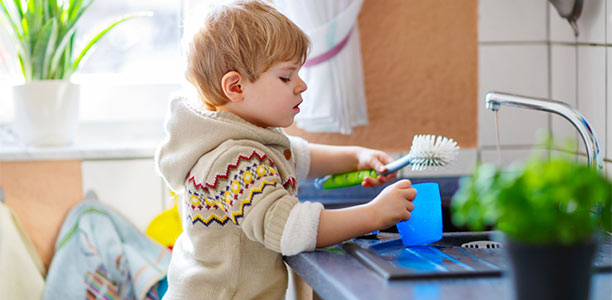The University of Melbourne and Australia’s national broadcaster are teaming up to solve one of the biggest mysteries at the heart of family life: which chores do kids do around the home?
The Melbourne School of Population and Global Health has joined forces with the ABC’s long-running kids’ show, Behind the News (BTN), to survey children about what they do and how they feel about it.
While spats about who unloads the dishwasher might seem at first glance a first-world problem, lead researcher Associate Professor Lisa Gibbs says the survey will explore the role of “required helpfulness” in developing young people’s resilience.
“Research going back to the Great Depression and, more recently, disaster recovery, suggests that kids often thrive when the going gets tough and they are truly needed,” says Dr Gibbs, who is Director of the University’s Jack Brockhoff Child Health and Wellbeing Program.
“We want to know what happens in contemporary families – do we need to be providing opportunities for children to feel useful and worthwhile, at a time when digital technologies are encouraging adults and children alike to be passive?”
Research collaborator Professor Dorothy Scott, a former Foundation Chair in Child Protection at the University and Director of the Australian Centre for Child Protection at the University of South Australia, said the survey would shed light on family roles.
“When the family was an economic unit, children were an important part of it. But now in our consumer society, children have only a minor role to play in terms of contributing to the household.”
The project, funded by the Myer Foundation, will see children enlisted as co-researchers, through workshops at participating schools and sporting clubs, to develop questions and interpret the results.
BTN presenter Nathan Bazley said the partnership combined BTN’s strengths in reaching a young audience, with the University’s research rigour.
“Instead of having experts tell kids information, we can now have kids telling experts what they think, and that could be a powerful tool for making policymakers take notice of what kids are saying.”
(Source: University of Melbourne)










